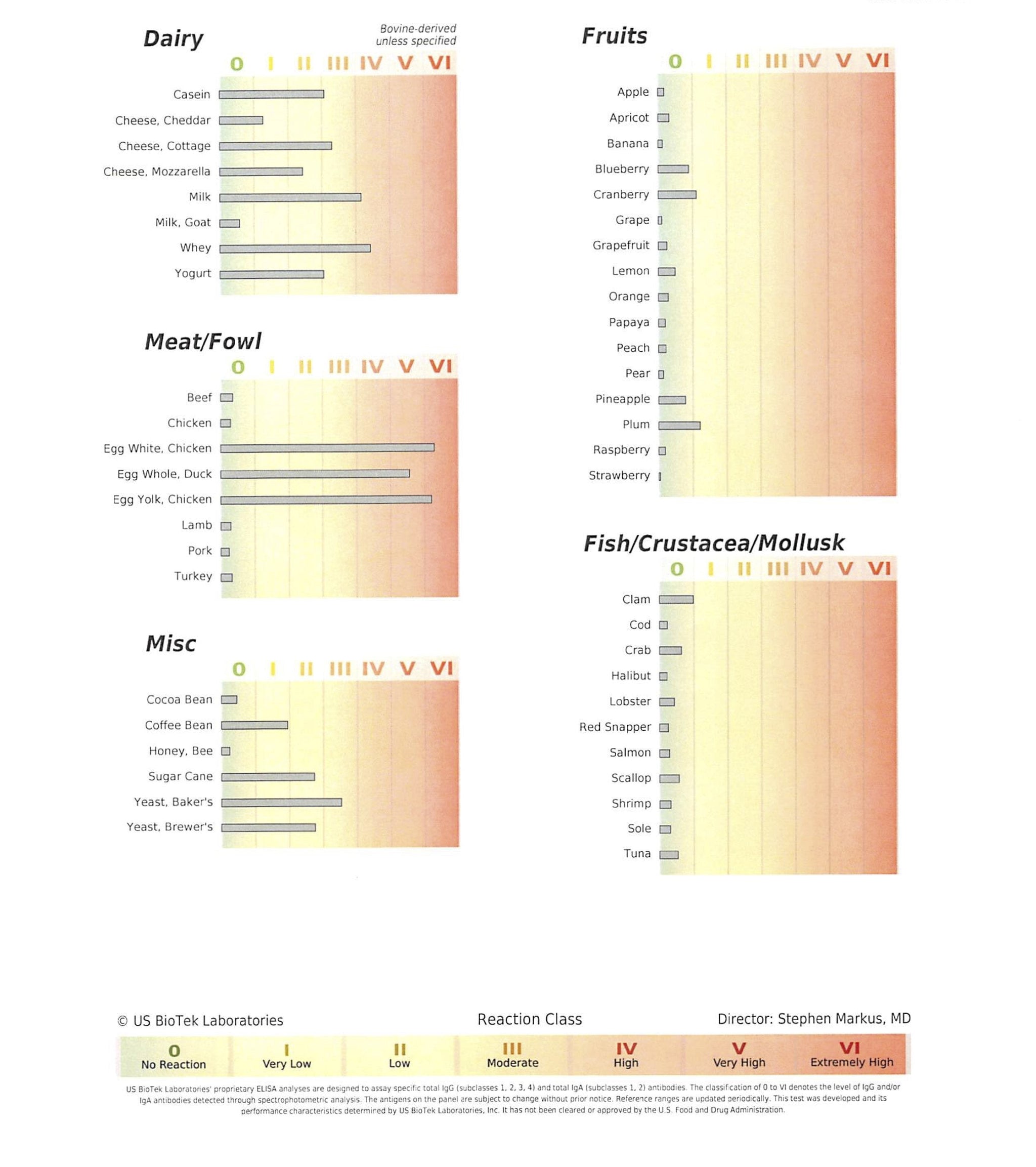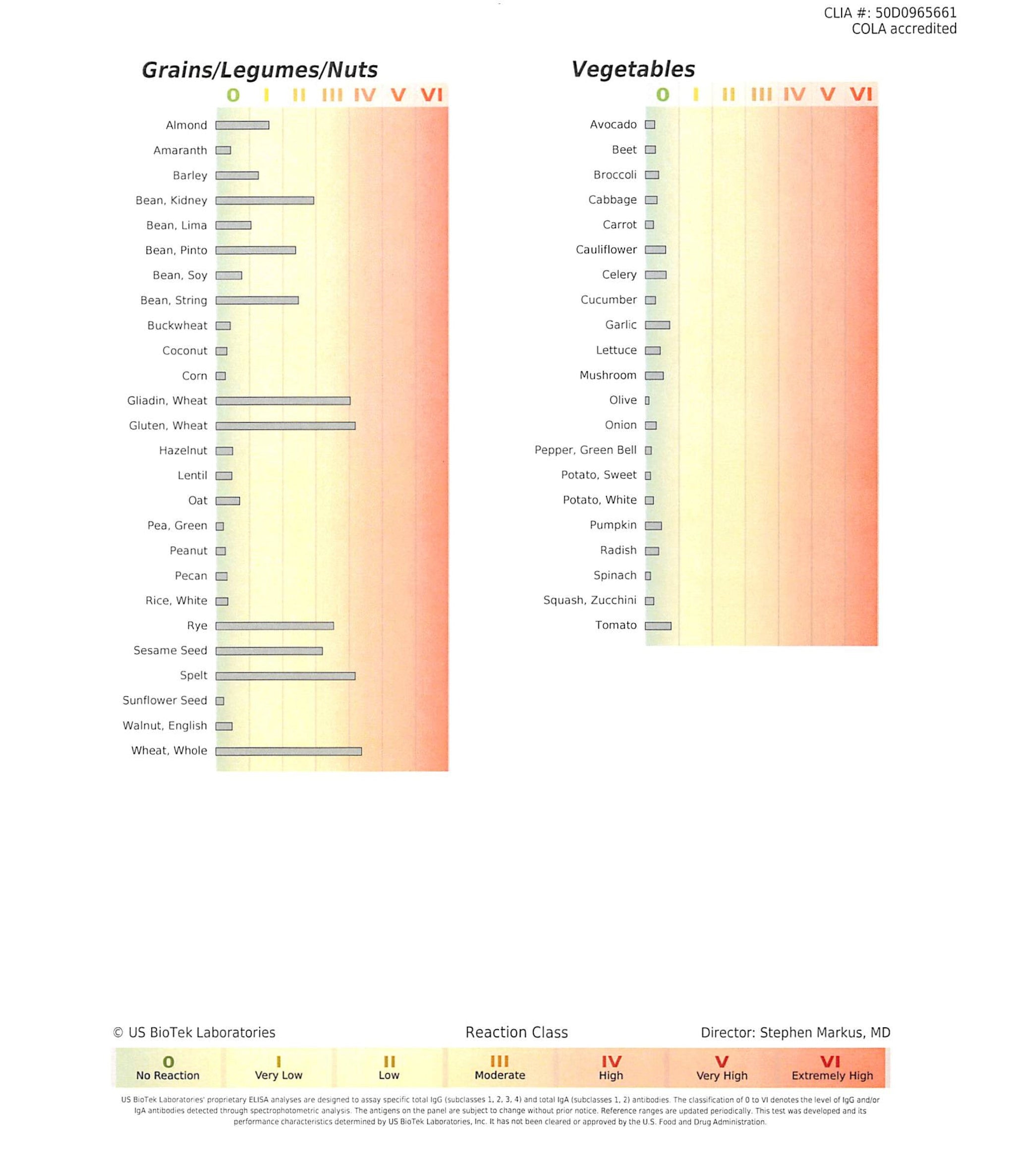Organic Acids Test
$375.00
Phone Consultation
Included with every test is a half hour phone consultation with one of our doctors to read and interpret your test results as well as discuss potential treatment options.
Organic Acids Test (OAT) - Nutritional & Metabolic Profile
The Organic Acids Test (OAT) provides an accurate evaluation of intestinal yeast and bacteria. Abnormally high levels of these microorganisms can cause or worsen behavior disorders, hyperactivity, movement disorders, fatigue and immune function. Many people with chronic illnesses and neurological disorders often excrete several abnormal organic acids. The cause of these high levels could include: oral antibiotic use, high sugar diets, immune deficiencies, and genetic factors.
If abnormalities are detected using the OAT, treatments can include supplements, such as vitamins and antioxidants, or dietary modification. Upon treatment, patients and practitioners have reported significant improvement such as decreased fatigue, regular bowel function, increased energy and alertness, increased concentration, improved verbal skills, less hyperactivity, and decreased abdominal pain. The OAT is strongly recommended as the initial screening test.
Specimen Requirements
10 mL of first morning urine before food or drink is suggested. Patient should avoid apples, grapes (including raisins), pears, cranberries and their juices 24 hours prior to specimen collection.
Clinical usefulness of the Organic Acid Test
- Evaluate energy production
- Assess central nervous system function
- Reveal high levels of GI yeast and bacteria
- Detect nutritional and antioxidant deficiencies
- Determine problems in fatty acid metabolism
- Identify excess oxalate
10 Reasons Every Individual with a Special Needs Diagnosis (Autism, Aspergers, Attention Deficit, etc.) Should Do a Urine Organic Acid Test By Kurt Woeller, D.O.
- Evaluates for various fungal toxins, including specific markers for Candida. Many people rely on stool testing for candida diagnosis and miss the presence of candida toxins through the Organic Acid Test. Candida can create problems with brain function including goofiness, giddiness, and inappropriate laughter, as well as sensory problems and self-stimulatory behavior.
- Evaluates for two specific toxins related to clostridia bacteria – HPHPA and 4-cresol. Both of these toxins can inhibit a dopamine converting enzyme leading to excess dopamine and toxic reactions in the brain and nervous system. Behavior problems such as moodiness, irritability, aggression, self-injurious behavior, sleep problems and more is associated with clostridia bacteria overgrowth.
- The information from the Organic Acid Test helps to prioritize treatment intervention instead of just assuming everything is a candida problem. Treating for candida when clostridia bacteria are present can lead to problems, i.e. worsening behavior.
- Evaluates for high oxalates (oxalic acid). Oxalates are compounds found in many foods, and can be worsened from candida overgrowth. High oxalates are associated with pain in the joints, muscles, and connective tissues. They can also trap heavy metals (such as mercury, lead, and arsenic) in the body, and lead to mineral imbalances as well. Behavior and self-injurious tendencies have been associated with high oxalates.
- Evaluates for mitochondrial imbalances. The mitochondria are the energy factories of our cells. Often they are stressed because of toxins from yeast, bacteria, metals, and even oxalates. Mitochondrial dysfunction is seen in autism and can be a contributing factor to poor attention and cognitive skills, as well as poor physical growth and development.
- Evaluates for imbalances in Dopamine (HVA) and Norepinephrine (VMA). The balance between these two important brain chemicals is critical for attention, focusing, mood, calmness and other functions of the nervous system. Attention deficit problems are commonly associated with norepinephrine imbalances.
- Evaluates for imbalances in serotonin (an important brain chemical for mood, fine and gross motor skills, and calmness), as well additional markers that can indicate toxic stress in the brain and nervous system such as Quinolinic Acid. High Quinolinic Acid is suggestive of toxic stress in the brain and is important to evaluate before implementing certain supplements particularly L-Tryptophan which is commonly used to help with sleep.
- Evaluates for two specific chemicals related to folate metabolism. Folate is part of the methylation cycle that supports the inner workings of the cells related to DNA function.
- Evaluates for various nutritional markers such as vitamin B6, B5, vitamin C, CoQ10, as well as N-Acetyl-Cysteine which is necessary for the production of glutathione.
- Evaluates for glutathione production problems. Glutathione is the most powerful antioxidant in our cells and is often deficient in autism. The Organic Acid Test evaluates for cellular markers related to this important antioxidant.
*This laboratory does not accept specimens from patients who reside in or physicians who practice in the state of New York
Related Items
Neurotransmitters Test
Phone Consultation Included with every test is a half hour phone consultation with one of our doctors to read and interpret your test results as well...
View full product detailsIgG Food Sensitivity Test
Phone Consultation Included with every test is a half hour phone consultation with one of our doctors to read and interpret your test results as well...
View full product detailsHeavy Metals Test
Phone Consultation Included with every test is a half hour phone consultation with one of our doctors to read and interpret your test results as well...
View full product detailsSign up to get the latest on sales, new releases and more …
© 2025 ADHD Naturally.
Powered by Shopify







